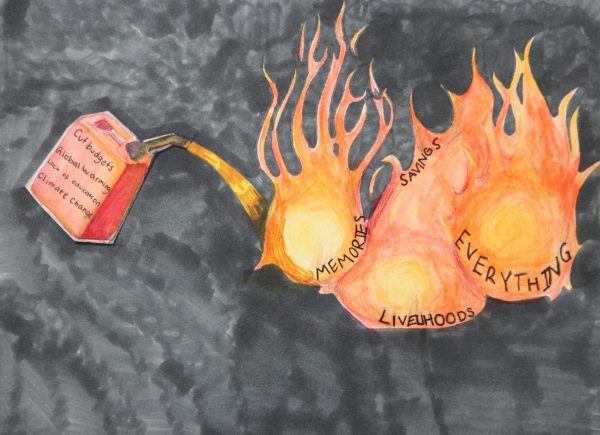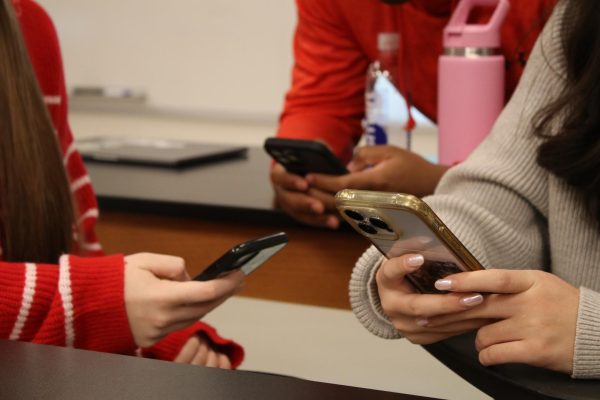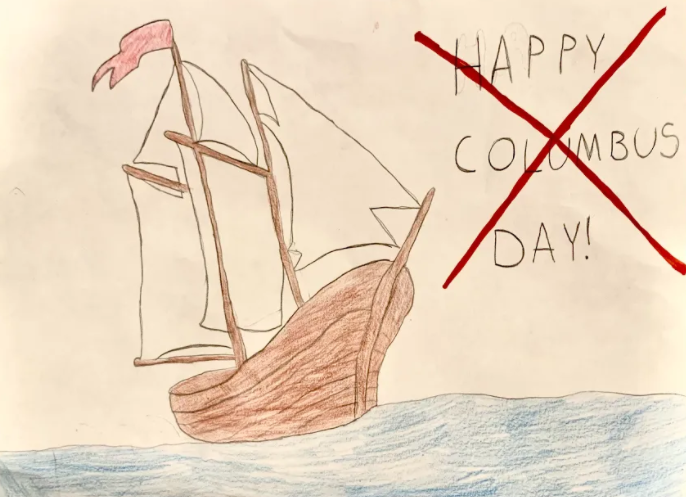Columbus Day Needs to be Replaced
Media by Aiden Burkhardt (he/him)
Many people and groups across the U.S. are looking to replace Columbus Day with Indigenous Peoples Day in honor of native culture.
It’s always necessary to re-evaluate bad ideas, and holidays are no exception. Standards and available information change with time, and such is the case with Columbus Day, for whom the 529th anniversary of their landing in the Americas is fast approaching.
Since 1937, Columbus Day has been a federal holiday. Yet, as of now, 14 states as well as more than 130 cities across the U.S. have started celebrating Indigenous Peoples Day instead, according to USA Today.
The reason for this drastic change is simple enough: not only did Columbus never set foot on North America, but he was a slaver, mutilator and harbinger of disease and death to indigenous people.
Though he did have multiple genuinely impressive accomplishments like navigating the treacherous Atlantic Ocean, it’s evident that the negatives far outweigh the positives with the recent shedding of light on his more intolerable actions.
This new recognition that Columbus doesn’t deserve to be celebrated is only the first step of change that needs to be made. The second step is the inclusion of Indigenous Peoples Day, which is celebrated either in place of or alongside Columbus Day on Oct. 11 (while Columbus made landfall on Oct. 12, Columbus Day is traditionally celebrated on the second Monday of Oct., which is Oct. 11th).
Not only is this new holiday a celebration of native cultures, heritage and tribal roots, but it is used as a reminder of what was inflicted upon the indigenous peoples as a result of European colonization.
Instead of honoring a man who ushered in an age of pain and wounds that remain not fully healed, people should be honoring the wonderful and unique tribal cultures that existed hundreds and sometimes thousands of years before Columbus and continue to exist today.
While Columbus Day might not be the most important or celebrated holiday, its ramifications certainly still matter. The Native American community likely still bears scars from the period of colonial oppression brought upon partially by Columbus, and it’s because of this that it’s plainly disrespectful and insulting to celebrate Columbus.
Columbus Day remains a federal holiday, but states and local governments can choose not to observe it. Many social movements, big and small, have arisen to promote the switch to Indigenous Peoples Day, ranging from attending a celebration, to donating to an organization upholding indigenous rights, or even simply reading native literature. Any little bit that helps bring attention to native communities and their vibrant culture is helpful.
In addition, numerous online petitions exist, intended either to remove Columbus Day from being a federal holiday, instate Indigenous Peoples Day, or both. Among the websites they exist on are Change.org and Action Network.
The good news is that recently, many more states have turned away from Columbus Day and toward Indigenous Peoples Day, but Missouri is not yet one of them.
When you celebrate a person, you celebrate their actions, and Columbus’ actions aren’t deserving of celebration. What is deserving is the rich culture of America’s indigenous peoples.
Your donation will support the student journalists of Marquette High School. Your contribution will allow us to purchase equipment and cover our annual website hosting costs. You may become a PATRON by making a donation at one of these levels: White/$30, Green/$50, Blue/$100. Patron names will be published in the print newsmagazine, on the website and once per quarter on our social media accounts.







